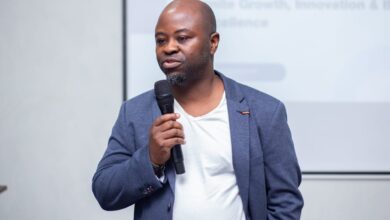Bridging the Tech Skills Shortfall: Revamped Academy Model Targets Work-Ready Talent

Ghana’s digital economy is expanding quickly, yet employers continue to report that many ICT graduates leave school without the practical skills needed for real-world technical work.
Although thousands complete ICT-related programmes every year, a significant number struggle to secure employment because they lack hands-on experience with the systems and tools used across the industry.
It is in response to this gap—between classroom knowledge and workplace readiness—that CWG Academy has relaunched its training programme, aimed at developing job-ready technology talent.
The relaunch, held in Accra, aligns with broader national efforts to strengthen workforce competitiveness as businesses adopt cloud computing, digital infrastructure and software-driven operations. The Academy, which began in 2015, will now run structured training in cloud technologies, ICT infrastructure and software development for both students and working professionals.

Speaking at the graduation ceremony of the first group under the revised curriculum, Harriet Yartey, Vice President for Regions and Managing Director of CWG Ghana, emphasized the need for applied learning.
“Having a computer science degree is no longer enough. Much of academic training remains theoretical, so graduates often struggle to apply what they studied to the expectations of the workplace,” she noted.
National and continental data highlight the scale of the challenge. The World Bank’s 2024 Africa Pulse Report shows that nearly 60 percent of graduates in Sub-Saharan Africa are unemployed or underemployed within a year of completing their studies, largely due to a mismatch between training and industry needs. In Ghana, youth unemployment stood at 22.5 percent in 2024, with ICT among the sectors facing the sharpest skills shortages.
CWG Academy’s redesigned model places emphasis on hands-on labs, mentorship and exposure to operational technology environments. The programme will also serve as a structured platform for National Service personnel to gain practical skills during their service year.
For participants, the shift is already making a difference.
Raphael Amegashitsi, a computer science student at Central University, described the training as transformative. “This made the theory make sense. Seeing how systems actually run has helped me understand how to apply what I’ve learned,” he said.
Industry analysts say such programmes will need to expand rapidly. The International Finance Corporation projects that by 2030, more than 230 million jobs in Africa will require digital competencies—driving annual demand for nearly nine million tech-skilled workers.
CWG Ghana plans to build deeper partnerships with universities, technology companies and certification bodies to ensure its curriculum remains aligned with evolving market needs.
The broader task ahead, industry stakeholders note, is not only to increase training, but to train at scale with direct employment outcomes—so Ghana’s digital transformation is led by a skilled local workforce rather than outsourced expertise.




